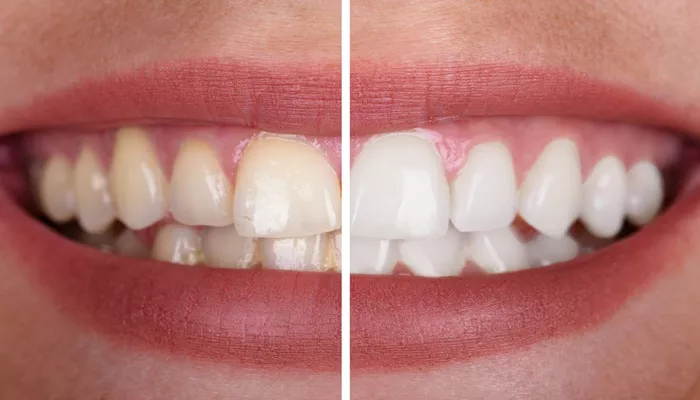Teeth whitening is a popular cosmetic treatment designed to enhance the appearance of one’s smile by removing stains and discoloration. For many individuals, achieving a brighter smile is a significant personal and professional goal. While private dental practices offer a range of teeth whitening options, some patients might wonder about the availability and costs of teeth whitening through the National Health Service (NHS) in the United Kingdom.
This comprehensive guide will delve into the specifics of NHS teeth whitening, including its availability, costs, and alternatives, to provide a clear understanding of how much you might expect to pay and what to consider when seeking this treatment.
What Is NHS Teeth Whitening?
NHS teeth whitening refers to teeth whitening treatments provided through the National Health Service in the UK. The NHS offers various dental services, but it’s essential to understand that cosmetic procedures, such as teeth whitening, typically fall outside the scope of NHS-funded treatments. The primary focus of NHS dental services is to address essential dental health issues and necessary treatments rather than purely cosmetic procedures.
Cost of Teeth Whitening through Private Practices
1. Types of Teeth Whitening Treatments
Private dental practices offer several types of teeth whitening treatments, each with different costs:
In-Office Whitening: This is a professional treatment performed at the dentist’s office. It involves applying a high-concentration bleaching agent to the teeth, often activated by a special light. In-office whitening is typically the most effective and fastest method, with results visible in just one session. The cost for in-office whitening generally ranges from £300 to £700.
At-Home Whitening Kits: These kits include custom-made trays and a lower concentration bleaching gel. The patient uses the trays and gel at home over a period of weeks. At-home whitening is less expensive than in-office treatments but requires more time to achieve the desired results. The cost for at-home whitening kits usually ranges from £150 to £400.
Over-the-Counter Products: There are various over-the-counter whitening products available, including strips, gels, and toothpaste.
These are typically less effective than professional treatments and cost between £20 and £100. While not provided by the NHS, these products are an option for those on a budget.
SEE ALSO: Is Hismile Teeth Whitening Safe?
2. Additional Costs and Considerations
When considering teeth whitening, it’s important to account for potential additional costs:
Consultation Fees: Some private dentists may charge a consultation fee to assess your suitability for whitening treatments. This fee can range from £50 to £100.
Follow-Up Treatments: To maintain results, you might need periodic touch-ups or maintenance treatments, which can add to the overall cost.
Customization: For at-home kits, the cost might vary based on the customization of trays and the type of whitening gel used.
NHS vs. Private Teeth Whitening Costs
1. Comparing Costs
The primary difference between NHS and private teeth whitening lies in the cost and availability of the service. NHS-funded teeth whitening is generally not available unless part of a specific clinical treatment plan.
In contrast, private practices offer a range of whitening treatments at varying costs.
NHS Costs: For treatments covered by the NHS, the cost is typically set by NHS pricing standards. Band 1 dental charges, which cover basic examinations, preventive advice, and simple treatments, are around £25.80. However, teeth whitening is not included in this category.
Private Costs: As previously mentioned, private teeth whitening costs can range from £150 to £700, depending on the type of treatment and the provider. The higher cost reflects the use of professional-grade materials and procedures that can deliver quicker and more noticeable results.
2. Why Private Teeth Whitening is More Expensive
Several factors contribute to the higher cost of private teeth whitening:
Professional Expertise: Private dentists often use advanced technology and techniques that can deliver superior results. The expertise of the dental professional also impacts the cost.
Customization: In-office treatments and custom at-home kits are tailored to each patient’s needs, which involves additional time and resources.
Quality of Products: Professional-grade whitening agents and equipment tend to be more expensive than over-the-counter products.
Alternative Solutions for Affordable Whitening
If you’re looking for affordable options for teeth whitening and NHS coverage is not an option, consider the following alternatives:
1. Dental Schools
Dental schools often offer whitening treatments at reduced rates as part of their training programs. Treatments are performed by dental students under the supervision of experienced faculty members. While this can be a more affordable option, it may require more time and scheduling flexibility.
2. Discounted Dental Plans
Some private dental practices offer discount plans or payment options for cosmetic procedures, including teeth whitening.
These plans can help spread the cost over several months, making it more manageable.
Tips for Choosing a Teeth Whitening Treatment
When selecting a teeth whitening treatment, consider the following tips:
Consult a Professional: Always consult with a dentist before starting any whitening treatment to ensure it’s suitable for your dental health and needs.
Research Providers: Compare different dental practices and their whitening services to find one that offers good value and quality.
Read Reviews: Look for reviews and testimonials from previous patients to gauge the effectiveness and satisfaction with the treatment.
Consider Maintenance: Be aware of the maintenance required to keep your teeth white and factor this into your decision-making process.
Conclusion
In summary, teeth whitening through the NHS is generally not available as a standalone cosmetic treatment. Patients seeking teeth whitening will typically need to explore private dental practices or consider alternative solutions such as dental schools or over-the-counter products. The cost of private teeth whitening varies depending on the type of treatment and the provider, with in-office treatments generally being more expensive than at-home kits.

